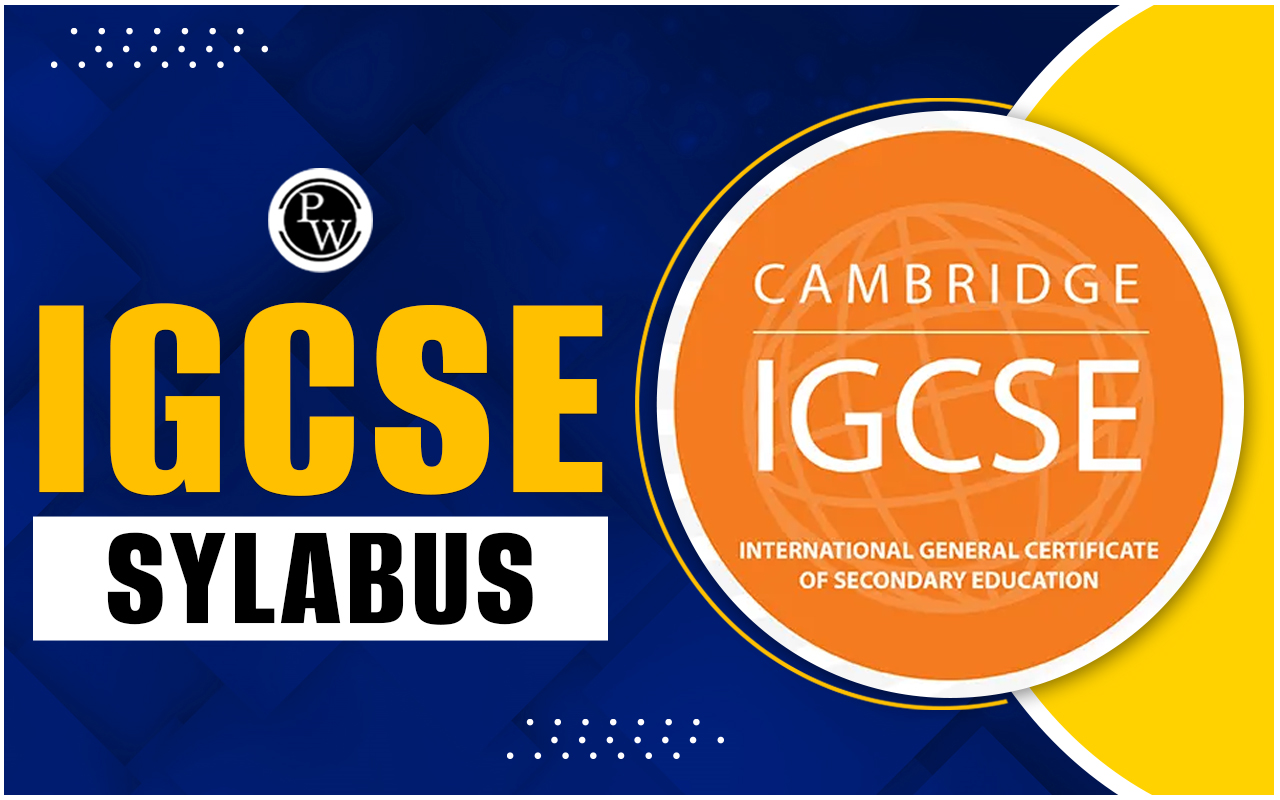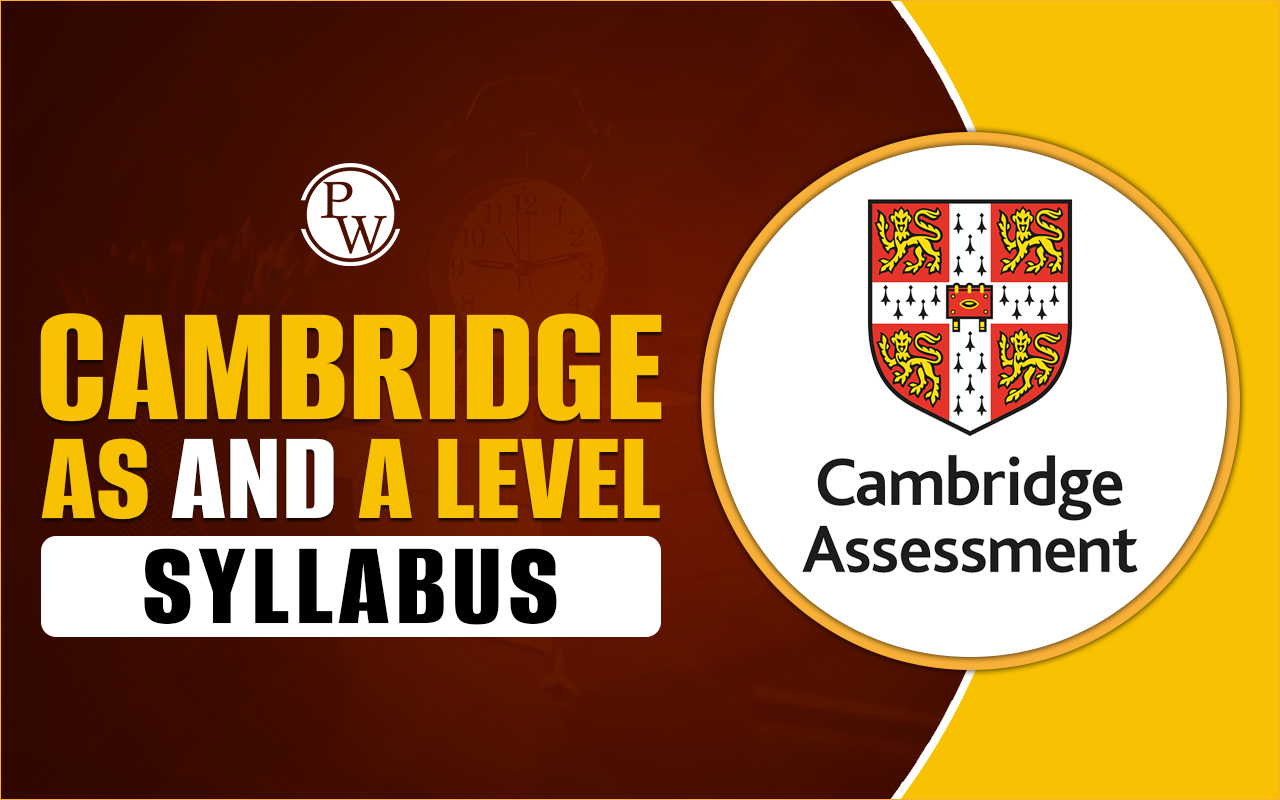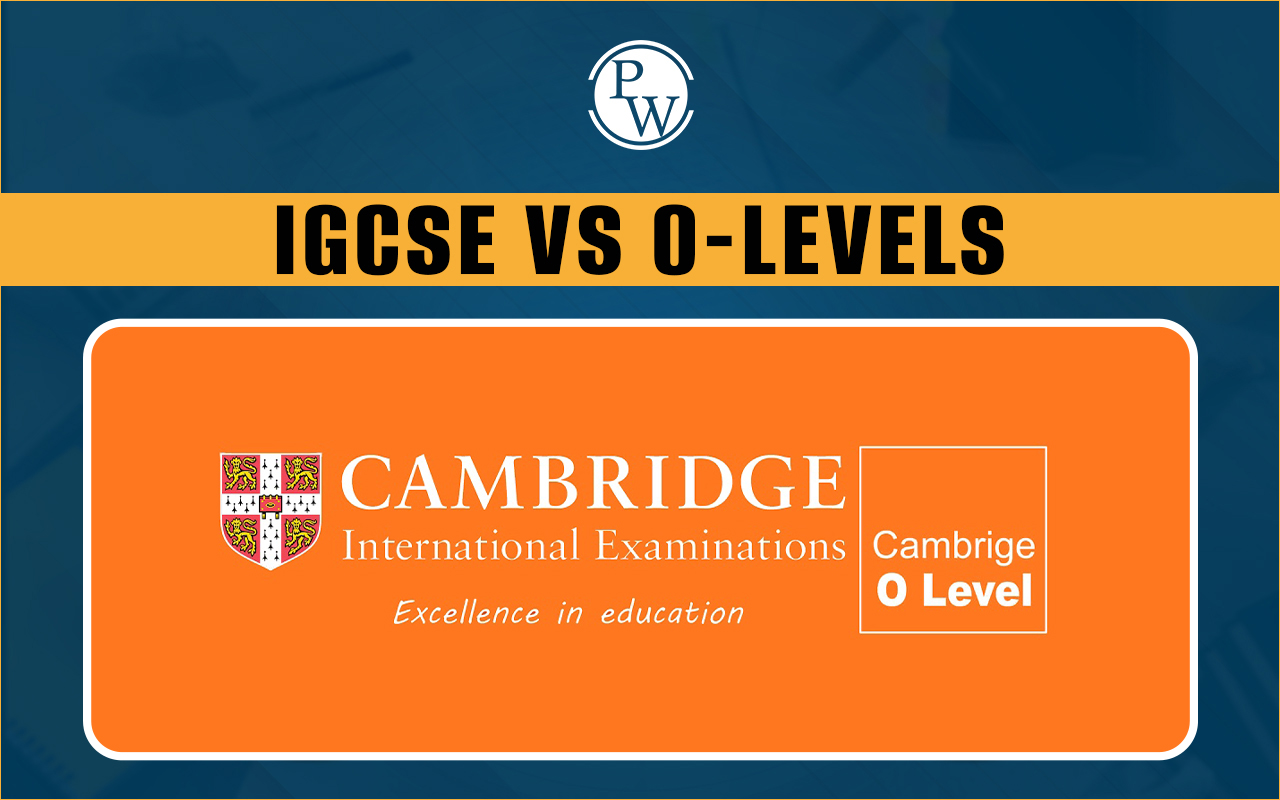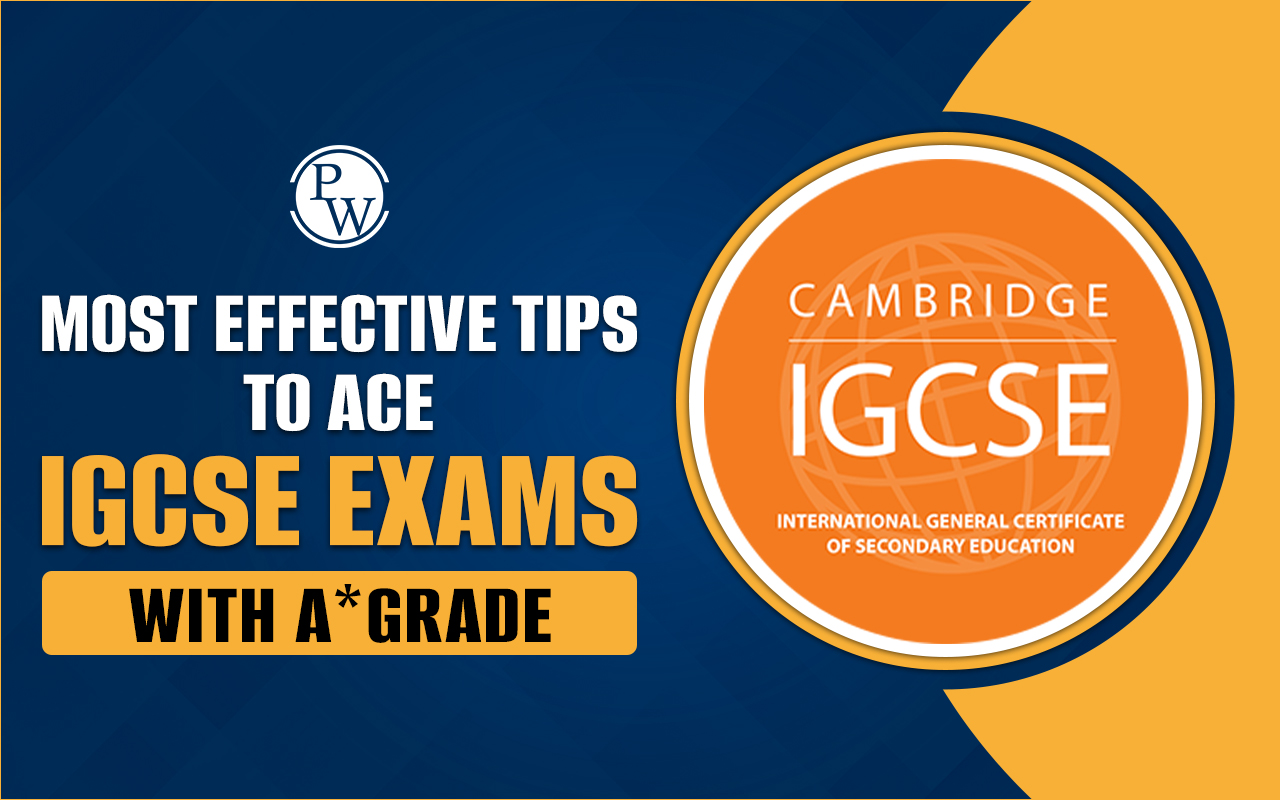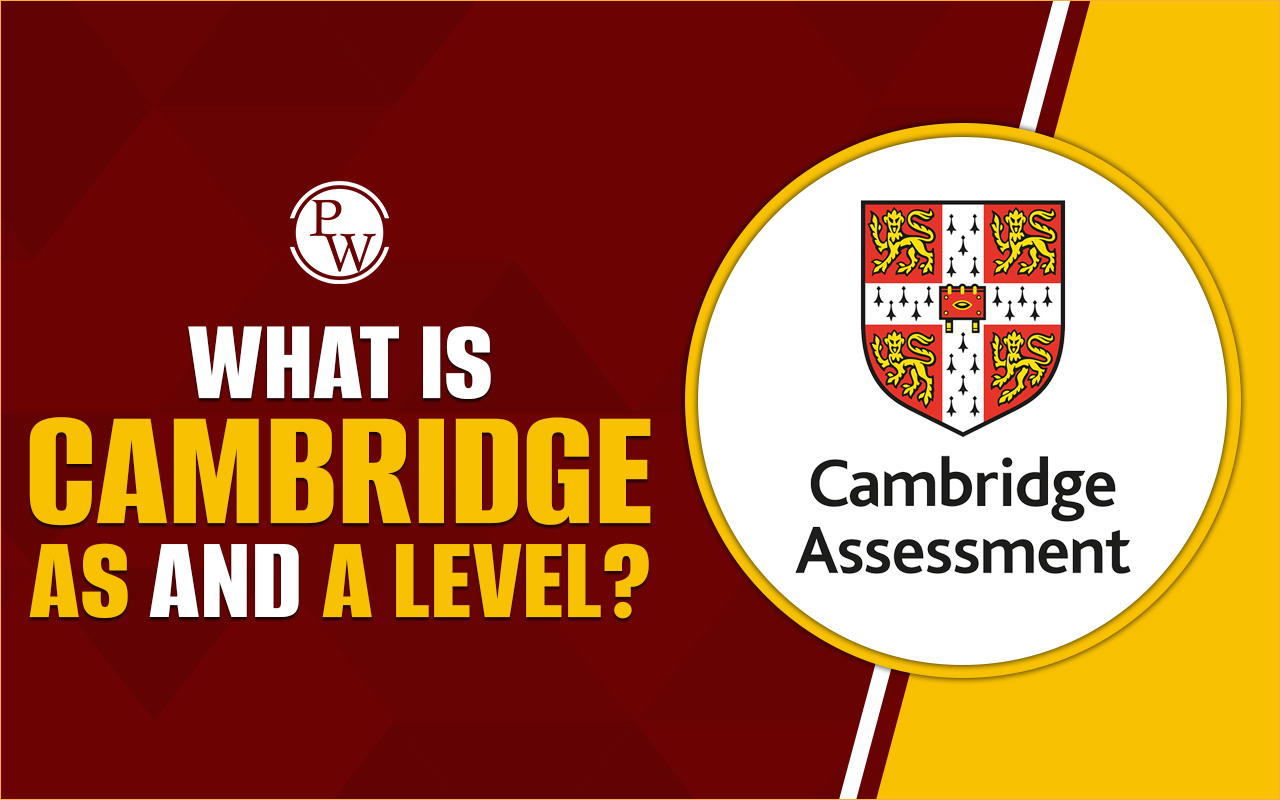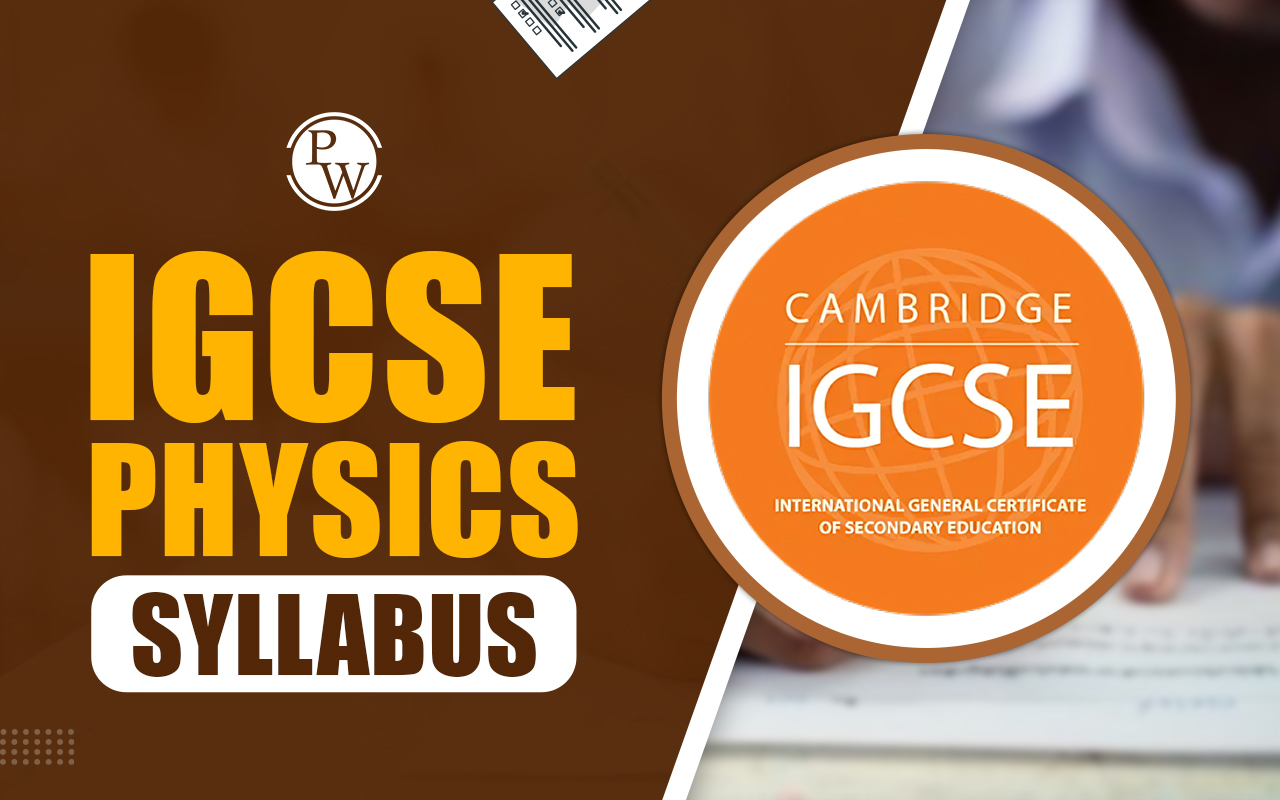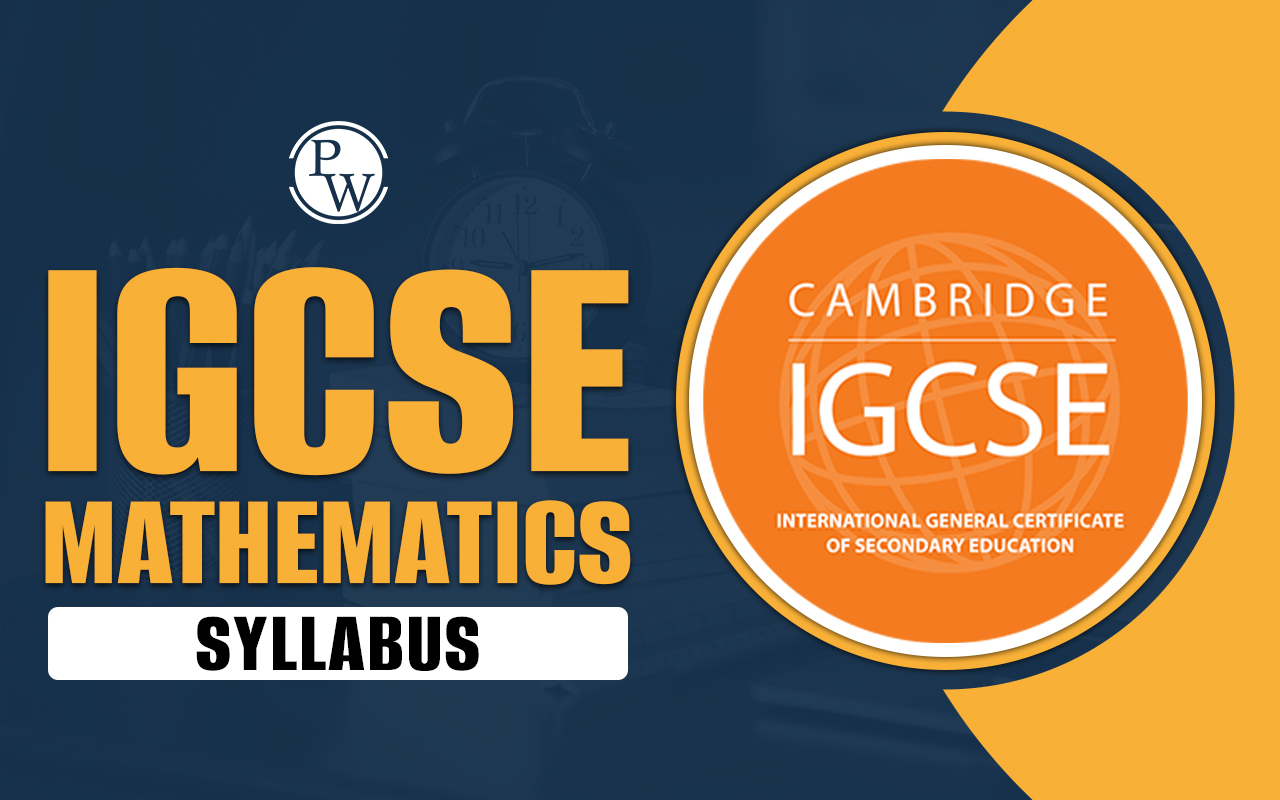
Cambridge AS and A Level Chemistry syllabus 2025 is a detailed document that outlines all the essential topics, practical skills, and assessment details required for success in the exams. With the next set of exams scheduled for 2025, this syllabus is a must-have resource for students preparing for one of the most challenging and rewarding courses.
It covers topics in physical, inorganic, and organic chemistry, along with advanced practical skills, ensuring students are fully equipped for the theoretical and experimental aspects of the subject. By using the syllabus, students can stay organized, focus on high-priority topics, and align their preparation with Cambridge's requirements. Download the Cambridge AS and A Level syllabus today and set yourself up for exam success in 2025.Cambridge AS and A Level Chemistry Syllabus 2025 Overview
Explore the complete AS and A level chemistry syllabus overview, covering physical, inorganic, and organic chemistry, along with practical skills. Detailed information is provided below for your reference.| Cambridge AS and A Level Chemistry Syllabus Overview | |
| AS Level Subject Content | A Level Subject Content |
| Physical Chemistry | Physical Chemistry |
| 1. Atomic structure | 23. Chemical energetics |
| 2. Atoms, molecules and stoichiometry | 24. Electrochemistry |
| 3. Chemical bonding | 25. Equilibria |
| 4. States of matter | 26. Reaction kinetics |
| 5. Chemical energetics | |
| 6. Electrochemistry | Inorganic Chemistry |
| 7. Equilibria | 27. Group 2 |
| 8. Reaction kinetics | 28. Chemistry of transition elements |
| Inorganic Chemistry | Organic Chemistry |
| 9. The Periodic Table: chemical periodicity | 29. An introduction to A Level organic chemistry |
| 10. Group 2 | 30. Hydrocarbons |
| 11. Group 17 | 31. Halogen compounds |
| 12. Nitrogen and sulfur | 32. Hydroxy compounds |
| 33. Carboxylic acids and derivatives | |
| Organic Chemistry | 34. Nitrogen compounds |
| 13. An introduction to AS Level organic chemistry | 35. Polymerisation |
| 14. Hydrocarbons | 36. Organic synthesis |
| 15. Halogen compounds | |
| 16. Hydroxy compounds | Analysis |
| 17. Carbonyl compounds | 37. Analytical techniques |
| 18. Carboxylic acids and derivatives | |
| 19. Nitrogen compounds | |
| 20. Polymerisation | |
| 21. Organic synthesis | |
| Practical Skills | |
| Analysis | A Level candidates also study practical skills. |
| 22. Analytical techniques | |
| Practical Skills | |
| AS Level candidates also study practical skills. | |
Key Changes in Cambridge AS and A Level Chemistry Old and New Syllabus
Understand the important updates in the new syllabus compared to the old one. Detailed changes are outlined below to help you prepare effectively.| Key Changes in Cambridge AS and A Level Chemistry Old and New Syllabus | |||
| Subtopic | Old Syllabus | New Syllabus | Key Changes |
| 15.1(c) | Substitution of an alcohol, e.g. by reaction with HX or KBr with H₂SO₄ or H₃PO₄; or with PCl₃ and heat, or with PCl₅, or with SOCl₂ | Substitution of an alcohol, e.g. by reaction with HX(g); or with KCl and concentrated H₂SO₄ or concentrated H₃PO₄; or with PCl₃ and heat, or with PCl₅, or with SOCl₂ | - HX now specified as HX(g). - KBr with H₂SO₄ or H₃PO₄ replaced by KCl and concentrated H₂SO₄ or H₃PO₄. |
| 16.2(b) | Substitution to halogenoalkanes, e.g. by reaction with HX or KBr with H₂SO₄ or H₃PO₄; or with PCl₃ and heat, or with PCl₅, or with SOCl₂ | Substitution to form halogenoalkanes, e.g. by reaction with HX(g); or with KCl and concentrated H₂SO₄ or concentrated H₃PO₄; or with PCl₃ and heat, or with PCl₅, or with SOCl₂ | - HX now specified as HX(g). - KBr with H₂SO₄ or H₃PO₄ replaced by KCl and concentrated H₂SO₄ or H₃PO₄. |
Important Notes:
- HX is clarified as HX(g) , explicitly indicating its gaseous form.
- Use of KBr with H₂SO₄ or H₃PO₄ has been replaced by KCl and concentrated H₂SO₄ or concentrated H₃PO₄ .
What Are Cambridge Grade Thresholds
Cambridge AS and A Level Chemistry Syllabus 2025 - Assessment Overview
Learn about the assessment structure, including paper details, weightage, and question types. A detailed breakdown is provided below for better understanding.| Cambridge AS and A Level Chemistry Syllabus - Assessment Overview | |||||
| Paper | Title | Duration | Marks | Description | Weightage |
| Paper 1 | Multiple Choice | 1 hour 15 minutes | 40 | 40 multiple-choice questions based on AS Level syllabus content. Externally assessed. | 31% of AS Level 15.5% of A Level |
| Paper 2 | AS Level Structured Questions | 1 hour 15 minutes | 60 | Structured questions based on AS Level syllabus content. Externally assessed. | 46% of AS Level 23% of A Level |
| Paper 3 | Advanced Practical Skills | 2 hours | 40 | Practical work and structured questions based on experimental skills in the Practical assessment section of the syllabus. Externally assessed. | 23% of AS Level 11.5% of A Level |
| Paper 4 | A Level Structured Questions | 2 hours | 100 | Structured questions based on A Level syllabus content (includes knowledge of material from AS Level syllabus). Externally assessed. | 38.5% of A Level |
| Paper 5 | Planning, Analysis and Evaluation | 1 hour 15 minutes | 30 | Questions based on experimental skills (planning, analysis, and evaluation). Context may be outside the syllabus content. Externally assessed. | 11.5% of A Level |
Cambridge AS and A Level Chemistry Syllabus 2025 Official PDF
The Cambridge AS and A Level Chemistry syllabus provides detailed information about the course structure, topics, and assessment format. It helps students understand what to expect in their exams and guides teachers in planning lessons effectively. From physical and organic chemistry to practical skills, this syllabus covers everything required for success. Download the official PDF using the link below to access the complete syllabus and ensure you're well-prepared.Preparation Tips for Cambridge AS and A Level Chemistry Syllabus 2025
1. Paper 1: Multiple Choice
This paper tests your foundational knowledge of AS Level Chemistry through 40 multiple-choice questions.- Revise the AS syllabus thoroughly, especially topics like atomic structure, chemical bonding, and reaction kinetics.
- Practice quick calculations for stoichiometry and energetics.
- Solve multiple-choice questions from past papers to improve accuracy and time management.
2. Paper 2: AS Level Structured Questions
This paper contains structured questions based on the AS syllabus.- Practice writing detailed answers for concepts like periodicity, enthalpy, and reaction kinetics.
- Focus on presenting calculations step by step, as partial marks are awarded.
- Understand experimental techniques, as some questions may test practical applications.
3. Paper 3: Advanced Practical Skills
This paper tests practical skills through structured questions and experimental analysis.- Familiarize yourself with experimental setups like titrations, qualitative analysis, and chromatography.
- Practice identifying sources of error and explaining improvements for experiments.
- Review common calculations, such as percentage yield and molarity.
4. Paper 4: A Level Structured Questions
This paper tests A Level concepts in depth, with a mix of theory and application-based questions.- Focus on advanced topics such as equilibria, transition elements, and organic synthesis.
- Solve past papers to understand the structure and style of long-answer questions.
- Practice explaining organic reaction mechanisms and conditions clearly.
5. Paper 5: Planning, Analysis, and Evaluation
This paper focuses on experimental design and analytical skills.- Practice designing experiments with clear hypotheses, variables, and methods.
- Work on interpreting experimental data and drawing conclusions.
- Review error analysis and suggest practical improvements effectively.
General Tips for Cambridge AS and A Level Chemistry 2025 For All Papers
Consistent Revision - Study each topic systematically, starting from the basics (AS) and moving to advanced (A-Level). Practice Past Papers - Solve at least five years of past papers to understand the exam pattern and identify frequently asked questions. Use Reliable Resources - Stick to Cambridge-endorsed textbooks, revision guides, and video tutorials for accurate content. Time Management - Practice solving papers within the allotted time to improve speed and efficiency. Join PW International Board's 60-Day Crash Course : Enroll in this comprehensive course designed to help you cover the syllabus, master key concepts, and practice effectively to ace your exam confidently.| International Boards Other Related Topics | |
| IGCSE Chemistry Syllabus | IGCSE Biology Syllabus |
| How to Choose the Cambridge IGCSE Subjects | Difference Between IGCSE VS ICSE |
| Cambridge Grade Thresholds | Cambridge IGCSE Exams with A* Grade |
Cambridge AS and A Level Chemistry Syllabus FAQs
What topics are covered in Cambridge AS and A Level Chemistry Syllabus?
The syllabus includes physical, inorganic, and organic chemistry topics, along with advanced practical skills and analytical techniques.
How are the exams structured?
The exams include multiple-choice questions, structured theory papers, and practical skill assessments across five papers.
How can I prepare for the practical component?
Practice common experiments like titrations, chromatography, and qualitative analysis. Focus on planning, data interpretation, and error analysis.
Are past papers important for preparation?
Yes, solving past papers helps you understand the question patterns, marking schemes, and frequently tested topics.
Where can I find the official syllabus?
The official syllabus can be downloaded from the Cambridge website or through trusted resources like PW International Board.
🔥 Trending Blogs
Talk to a counsellorHave doubts? Our support team will be happy to assist you!

Check out these Related Articles
Free Learning Resources
PW Books
Notes (Class 10-12)
PW Study Materials
Notes (Class 6-9)
Ncert Solutions
Govt Exams
Class 6th to 12th Online Courses
Govt Job Exams Courses
UPSC Coaching
Defence Exam Coaching
Gate Exam Coaching
Other Exams
Know about Physics Wallah
Physics Wallah is an Indian edtech platform that provides accessible & comprehensive learning experiences to students from Class 6th to postgraduate level. We also provide extensive NCERT solutions, sample paper, NEET, JEE Mains, BITSAT previous year papers & more such resources to students. Physics Wallah also caters to over 3.5 million registered students and over 78 lakh+ Youtube subscribers with 4.8 rating on its app.
We Stand Out because
We provide students with intensive courses with India’s qualified & experienced faculties & mentors. PW strives to make the learning experience comprehensive and accessible for students of all sections of society. We believe in empowering every single student who couldn't dream of a good career in engineering and medical field earlier.
Our Key Focus Areas
Physics Wallah's main focus is to make the learning experience as economical as possible for all students. With our affordable courses like Lakshya, Udaan and Arjuna and many others, we have been able to provide a platform for lakhs of aspirants. From providing Chemistry, Maths, Physics formula to giving e-books of eminent authors like RD Sharma, RS Aggarwal and Lakhmir Singh, PW focuses on every single student's need for preparation.
What Makes Us Different
Physics Wallah strives to develop a comprehensive pedagogical structure for students, where they get a state-of-the-art learning experience with study material and resources. Apart from catering students preparing for JEE Mains and NEET, PW also provides study material for each state board like Uttar Pradesh, Bihar, and others
Copyright © 2026 Physicswallah Limited All rights reserved.
